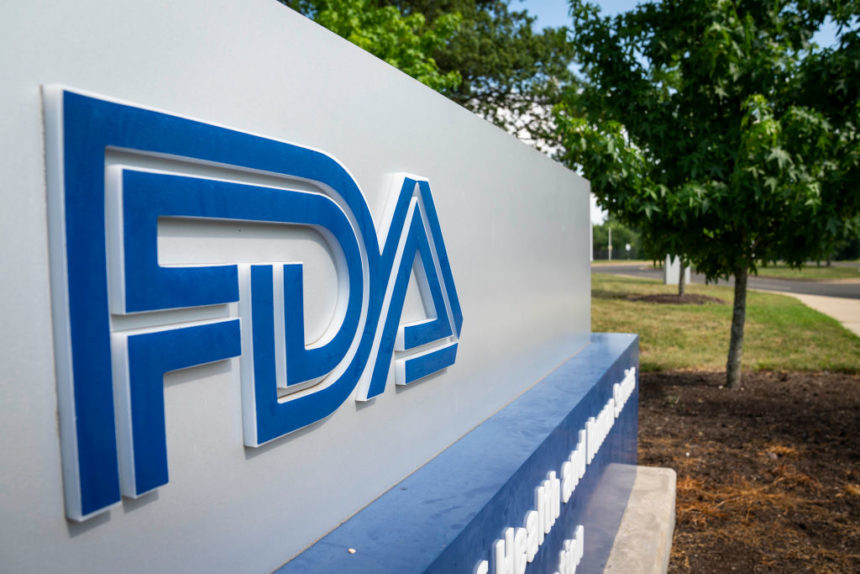Eli Lilly announced that the Food and Drug Administration expects to convene an adcomm to review its Phase 3 trial for its Alzheimer’s disease drug candidate donanemab.
The pharma giant announced Friday morning that the TRAILBLAZER-ALZ 2 trial will be reviewed by the agency’s Peripheral and Central Nervous System Drugs Advisory Committee in the coming months to evaluate the drug’s safety and efficacy.
A date for the adcomm meeting has not been set yet, but Lilly said its anticipated FDA action on donanemab is delayed beyond Q1. Lilly’s stock was trading down nearly 2% during the early morning session.
The drugmaker noted that the FDA is interested in understanding the unique trial design of the study, specifically its limited-duration dosing regimen that allowed patients to complete based on amyloid plaque assessment as well as the inclusion of participants based on tau levels.
“We are confident in donanemab’s potential to offer very meaningful benefits to people with early symptomatic Alzheimer’s disease,” Anne White, EVP of Lilly and president of Lilly Neuroscience, said in a statement. “It was unexpected to learn the FDA will convene an advisory committee at this stage in the review process, but we look forward to the opportunity to further present the TRAILBLAZER-ALZ 2 results and put donanemab’s strong efficacy in the context of safety.”
Donanemab’s journey continues
To say that the saga of donanemab has been windy is putting it lightly.
Early last year, shortly after the FDA greenlit Leqembi, the Alzheimer’s treatment jointly developed by Biogen and Eisai, under the accelerated approval pathway, the agency rejected donanemab.
The FDA requested additional data from Lilly, including at least 100 patients who received a minimum of 12 months of continued treatment.
A few months later, the drugmaker announced that the early Alzheimer’s disease treatment succeeded in a Phase 3 trial.
In a study of 1,736 patients, nearly half of the participants on donanemab had no clinical progression of Alzheimer’s at the one-year mark, compared with 29% of patients on the placebo. The drug also slowed the clinical decline of patients by 35% compared to the placebo.
Months after that topline data was released, Lilly released the full Phase 3 data that confirmed donanemab’s clinical benefits and set expectations for an approval before the end of 2023.
However, as the calendar turned over to 2024, action from the FDA remained to be determined.
Alzheimer’s advocates react
Following Lilly’s announcement, Alzheimer’s disease advocates weighed in on the FDA’s decision with a certain amount of cautious optimism — all while noting that the adcomm news was still a surprise.
In a statement, the Alzheimer’s Association said it appreciates the FDA’s “thorough process” for reviewing treatments for the disease and noted that safety and appropriate administration of the treatments is a paramount concern.
“On behalf of everyone who could benefit from this treatment, we strongly urge the FDA to move swiftly in this next stage of its review,” the organization stated.
Howard Fillit, MD, co-founder and chief science officer of the Alzheimer’s Drug Discovery Foundation, said in a statement that the FDA’s decision was not a setback but rather “another step forward in the drug approval process.”
He added that the agency is following through on its due diligence obligations and that this development doesn’t represent a slowing in the momentum surrounding emerging treatments in the Alzheimer’s disease space.
“The TRAILBLAZER-ALZ 2 trial is emblematic of a new era of Alzheimer’s research where we are now able to conduct innovative trials that can definitively tell us whether a drug is effective,” Fillit stated. “As the first class of Alzheimer’s drugs come to market—with the promise of more novel therapies to follow—the field is working together to build the path forward for future drug approvals.”
Looking at Leqembi
While donanemab continues to wait in regulatory purgatory, one of the main beneficiaries could be Leqembi.
Approved by the FDA last July months after receiving accelerated approval, the drug represents one of the most promising advancements for treating the memory-robbing disease suffered by millions around the globe.
Prior to its full traditional approval, the drug had its first recorded sales, prescription written and patient infusion.
Coincidentally, Eisai is hosting an annual informational meeting about the drug Friday afternoon.
While Leqembi made a modest impact on Biogen’s earnings — delivering $7 million in Q4 for in-market product revenue and $10 million for the year — there is hope for significant growth in the years to come.
An analysis from last spring predicted Leqembi would become a blockbuster drug by the end of the decade, generating $13 billion in global sales. However, the report noted that the drug would face competition donanemab, even though it was rejected by the FDA for an accelerated approval weeks after Leqembi’s approval.
“With the rejection of donanemab’s bid for accelerated approval, Leqembi is in a favourable position, expected to emerge as one of the best-selling drugs for Alzheimer’s disease in the coming years,” the report stated.
However, Robert Howard, a professor of old age psychiatry at the UCL Institute of Mental Health, said the FDA’s call for an adcomm was “very bad news for Lilly” given that the gap continues to widen between Leqembi and donanemab as it relates to regulatory approval.







